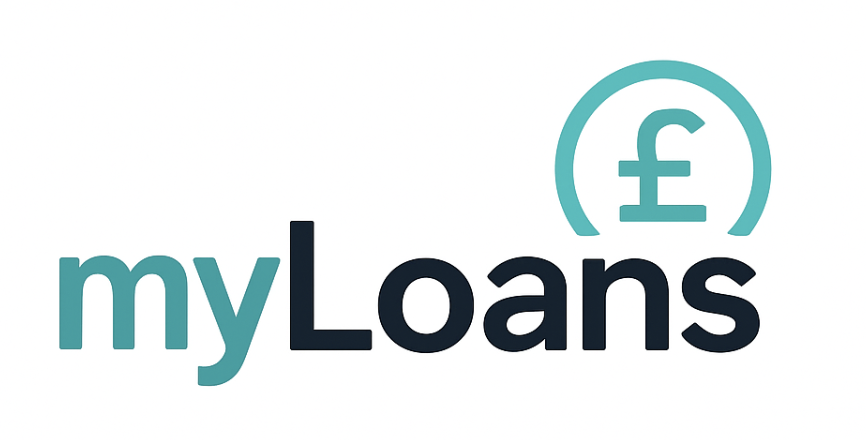Table of Contents
Understanding Short-Term Loans in the UK
Short term loans in the UK play an important role in the consumer credit market. They give borrowers fast access to cash when unexpected expenses arise. For example, they can cover urgent car repairs or help bridge a property transaction. These loans offer much-needed flexibility, yet they also bring higher interest rates and shorter repayment terms. As a result, they carry risks when borrowers use them without careful planning.
FCA Regulations for Short Term Loans UK
In recent years, the Financial Conduct Authority (FCA) has tightened regulation to protect UK borrowers. The FCA now sets strict rules that cap the total cost of borrowing and require lenders to check affordability before approving a loan. These changes increased transparency and reduced the risk of debt spirals. Nevertheless, borrowers must still understand how short-term credit works, when it makes sense, and when it should be avoided.
What This Short Term Loan Guide Covers
This comprehensive guide explains everything you need to know about short term loans UK, including:
-
What short-term loans are and how they work
-
The different types of short-term loans available in the UK market
-
Eligibility requirements that lenders apply
-
The costs, fees, and FCA regulations to know before borrowing
-
The smartest uses of short-term loans—and the warning signs to avoid
-
The consumer protections that safeguard borrowers
By the end of this guide, you will have the knowledge to decide whether a short-term loan is the right financial solution for your situation. In addition, you will understand when safer alternatives to short term loans might be more cost-effective.
What Is a Short Term Loan in the UK?
A short term loan in the UK is a type of borrowing repaid over a relatively brief period, usually between 1 and 18 months. Unlike traditional long-term finance such as mortgages or car loans, short-term credit exists to cover immediate financial needs rather than large purchases or extended commitments.
These loans are widely available across the UK and regulated by the Financial Conduct Authority (FCA). Borrowers can apply online or through specialist lenders, and the process is often fast and straightforward. In many cases, applicants receive same-day approval and funds within hours.
🔑 Key Features of Short Term Loans UK
-
Fast approval: Many lenders issue instant decisions or transfer funds on the same day.
-
Smaller loan amounts: Typically range from £100 to £25,000, depending on loan type (payday, instalment, bridging).
-
Higher interest rates: Costs are usually higher compared to long-term credit because of the short repayment period and increased lender risk.
-
Flexible eligibility: Some short-term lenders cater to borrowers with less-than-perfect credit scores, provided they can demonstrate affordability.
-
Short repayment window: Most loans must be cleared in full, with interest, within a few weeks to 18 months.
Why Do Borrowers Use Short Term Loans in the UK?
Borrowers often turn to short term borrowing in the UK when they face unexpected expenses or temporary cash flow gaps. Common scenarios include:
-
Emergency household or car repairs
-
Covering bills before payday
-
Bridging the gap in a property purchase
For some households, short term loans may feel like the only option. However, as StepChange Debt Charity explains, these products should only be used when repayment is certain and alternatives to short-term loans are not available.
📌 Key Takeaway
A short term loan in the UK is designed for speed and convenience, not long-term affordability. They can be useful in emergencies, but higher interest rates make them risky if repayments are not carefully planned.
Types of Short Term Loans in the UK
Not all short term loans in the UK are created equal. The lending market offers a variety of products tailored to different needs—from small payday loans to large bridging finance. Understanding the differences between these short-term credit options is essential before choosing the right solution.
Below are the most common types of short-term loans in the UK, with their features, typical use cases, and key risks.
1. Payday Loans UK
-
Loan size: Usually £100–£1,000
-
Repayment period: 1–6 months, often aligned with your payday
-
Costs: Very high APRs (1,000%+ typical), but capped by the FCA rules at 0.8% daily interest
-
Best for: Covering urgent, small expenses like utility bills, car repairs, or medical costs
-
Risks: Easy to fall into a debt cycle if repeatedly rolled over
2. Instalment Loans UK
-
Loan size: Typically £500–£5,000
-
Repayment period: 3–12 months, repaid in fixed instalments
-
Costs: APRs lower than payday loans but still higher than traditional bank loans
-
Best for: Borrowers who want predictable monthly payments rather than a lump-sum repayment
-
Risks: Longer duration means higher overall interest costs
3. Bridging Loans UK
-
Loan size: Often £25,000+, secured against property
-
Repayment period: 6–18 months
-
Costs: Higher interest rates compared to mortgages, plus arrangement fees
-
Best for: Property buyers needing funds quickly, such as auction purchases or buying before selling
-
Risks: Being a secured loan, you risk losing your property if you default
4. Overdrafts and Credit Card Cash Advances
-
Loan size: Depends on bank or card provider
-
Repayment period: Open-ended, but interest accrues daily
-
Costs: Expensive if not repaid quickly, as fees and daily charges add up fast
-
Best for: Short-term cash flow needs, particularly if you have an authorised overdraft
-
Risks: Easy to exceed limits, leading to high penalty fees
5. Business Short Term Loans UK
-
Loan size: Typically £5,000–£250,000, depending on lender
-
Repayment period: 3–12 months
-
Costs: May include interest plus fees for invoice factoring or merchant cash advances
-
Best for: SMEs needing working capital, bridging invoice delays, or seasonal cash flow support
-
Risks: High costs can reduce profit margins if not managed carefully
Quick Comparison Table
| Loan Type | Typical Loan Amount | Repayment Term | Key Use Case | Main Risk |
|---|---|---|---|---|
| Payday Loans UK | £100–£1,000 | 1–6 months | Emergencies | Debt cycle risk |
| Instalment Loans UK | £500–£5,000 | 3–12 months | Predictable repayments | High overall cost |
| Bridging Loans UK | £25,000+ | 6–18 months | Property transactions | Secured debt risk |
| Overdrafts & Card Advances | Varies | Flexible | Short-term gaps | Expensive fees |
| Business Short Term Loans UK | £5,000–£250,000 | 3–12 months | SME cash flow | High cost impact |
Key Takeaway
Different types of short term loans UK are designed for different circumstances. Choosing the wrong product can be costly—so always match the loan type to your financial need and ensure the lender is FCA authorised. For independent guidance, you can also check MoneyHelper UK or Citizens Advice.
Who Is Eligible for a Short Term Loan in the UK?
Eligibility for a short term loan in the UK will vary depending on the lender and the type of loan you apply for. However, there are several common requirements that apply across most FCA-regulated providers.
✅ Standard Eligibility Criteria for Short Term Loans UK
-
Age: You must be at least 18 years old and a permanent UK resident. Some lenders may require you to be over 21.
-
Income: Proof of a regular income is usually required, whether from employment, self-employment, or certain benefits. Lenders use this to assess your ability to repay.
-
Bank account: A valid UK current account with direct debit access is necessary so lenders can transfer funds and collect repayments.
-
Credit history: Many lenders run a credit check, though some accept applicants with poor credit scores if they can demonstrate affordability.
🔍 Affordability Checks (FCA Requirement)
All FCA-authorised lenders must carry out a formal affordability assessment before approving a short term loan. This process includes:
-
Reviewing your income and expenses
-
Assessing your outstanding debts
-
Ensuring the loan will not place you in financial hardship
If a lender does not perform these checks, it may be a red flag that they are operating outside FCA rules. For more guidance, see StepChange Debt Charity.
👥 Special Considerations for Short Term Loan Eligibility
-
Self-employed borrowers: May need to provide bank statements or tax returns to prove income stability.
-
Bad credit applicants: Some short-term lenders specialise in loans for people with poor credit histories, but the interest rates are usually higher.
-
Students or unemployed applicants: Typically have fewer options, but may still qualify if they have a guarantor or another form of income.
📌 Key Takeaway
Being eligible for a short term loan UK isn’t just about passing the lender’s criteria—it’s also about being confident you can repay on time. Even if you qualify, always consider whether the borrowing is affordable and necessary before applying.
Costs, Fees & Interest Rates
One of the most important factors to understand about short-term loans in the UK is the true cost of borrowing. Because these products are designed for fast access to money and shorter repayment terms, they often come with higher interest rates and fees than long-term credit options like personal loans or mortgages.
To protect consumers, the Financial Conduct Authority (FCA) introduced strict rules in 2015 that set clear limits on what lenders can charge.
💷 FCA Cost Caps (UK Rules)
If you take out a short-term loan with an FCA-regulated lender, you are protected by three key cost caps:
-
Daily interest cap: Lenders cannot charge more than 0.8% per day of the amount borrowed.
-
Default fee cap: If you miss a repayment, the maximum late fee is £15 (though further interest may still accrue).
-
Total cost cap: You will never repay more than 100% of the amount borrowed. In other words, you cannot be charged more than double what you originally borrowed, even if you miss payments.
These rules were introduced after years of controversy around payday lenders, when some borrowers found themselves owing three to four times the original loan amount due to rollovers and hidden fees.
📊 Example of Short-Term Loan Costs
Let’s say you borrow £250 for 30 days:
-
Daily interest (max): £2.00.
-
30 days of interest: £60.
-
Total repayable: £310.
If you missed your first repayment and were charged a default fee, the maximum penalty would be £15—bringing the total to £325. Importantly, under FCA rules, your debt could never spiral beyond £500 in total, no matter how long it remained unpaid.
⚖️ Why Costs Are Higher Than Long-Term Loans
Short-term loans typically have higher APRs than traditional bank products for several reasons:
-
Short repayment window → lenders earn their return in weeks, not years.
-
Higher risk → many borrowers have lower credit scores.
-
Unsecured borrowing → most payday and instalment loans are not backed by collateral.
-
Convenience premium → fast approvals and same-day payouts often carry a higher cost.
🔍 What Borrowers Should Watch Out For
Even with FCA protections in place, you should always:
-
Compare APR and total cost of credit across lenders.
-
Watch for hidden fees such as early repayment charges (less common but possible).
-
Avoid lenders who are not FCA-authorised—these may operate illegally and ignore consumer protections.
📌 Key Takeaway
Thanks to FCA rules, short-term loans in the UK are safer than they used to be. However, they remain an expensive form of borrowing and should only be used for genuine short-term needs where repayment is certain.
When Short-Term Loans Can Be Useful
While short-term loans in the UK are expensive compared to mainstream credit, there are situations where they can be a practical solution. The key is to ensure the loan is affordable, necessary, and repaid on time.
Here are some of the most common scenarios where a short-term loan might make sense:
1. Covering Unexpected Bills Before Payday
Sometimes an urgent bill—such as utilities, council tax, or rent—falls due before your wages land. A small payday or instalment loan can provide a bridge between paydays, helping you avoid late payment penalties.
Example: A worker short £150 on rent who knows their salary arrives in three days might consider a short-term loan to avoid arrears.
2. Emergency Car or Appliance Repairs
A broken boiler in winter or a failed MOT can be both unexpected and unavoidable. Short-term loans can provide quick access to funds when such emergency repairs cannot be delayed.
Example: £500 borrowed over three months to cover essential car repairs, repaid once monthly salary is received.
3. Bridging Finance for Property Transactions
Bridging loans are a specific type of short-term loan used in property. They allow buyers to secure a new home while waiting to sell an existing property, or to complete quickly on an auction purchase.
Example: A homeowner borrows £50,000 via a bridging loan to complete a house purchase, repaying once their old property sells.
4. Business Cash Flow Gaps
Small and medium-sized enterprises (SMEs) often experience seasonal or invoice-based cash flow issues. Business short-term loans or merchant cash advances can help cover operating costs, payroll, or supplier invoices until payments clear.
Example: A retail business borrows £10,000 for three months to cover stock purchases during a busy sales period, repaid from incoming revenue.
5. Managing One-Off Expenses
Occasionally, people use short-term loans for planned but urgent one-off expenses—such as moving costs, school fees, or covering medical bills not paid by the NHS. These situations should still be approached with caution, but can sometimes justify short-term borrowing if repayment is certain.
⚠️ When Short-Term Loans Should Not Be Used
It’s just as important to highlight when these loans are a poor choice:
-
Everyday living costs (food, petrol, routine bills).
-
Long-term debt consolidation.
-
Speculative investments or gambling.
In these cases, the costs can quickly outweigh the benefits and lead to financial stress.
📌 Key Takeaway
Short-term loans can be useful financial tools in emergencies, but only when:
-
The expense is essential.
-
You have a clear repayment plan.
-
You’ve checked FCA-authorised lenders and compared options.
If those conditions aren’t met, alternatives to short-term loans (credit unions, salary advances, or budgeting adjustments) may be safer.
Risks and Red Flags
While short-term loans can be useful in the right circumstances, they also carry significant risks. Borrowers need to be aware of these before applying, as misusing short-term credit can quickly lead to long-term financial problems.
1. Debt Cycles from Repeated Borrowing
One of the most common dangers is falling into a debt spiral. Because short-term loans are designed to be repaid quickly, many borrowers find themselves unable to clear the balance in time. They then take out new loans to cover old ones, creating a cycle of dependency.
2. Loan Rollovers (Rare but Costly)
Some lenders may allow a rollover—extending your loan term by paying a fee. While this offers short-term relief, it significantly increases the overall cost. Under FCA rules, loans cannot be rolled over more than two times, but even one rollover can make repayment more expensive than originally planned.
⚠️ Key risk: Borrowers end up paying more in fees and interest than the original loan amount.
3. Unregulated Lenders (“Loan Sharks”)
Borrowing from an unregulated lender (often referred to as a “loan shark”) is dangerous. These illegal lenders:
-
Do not follow FCA affordability rules.
-
Often charge excessive, illegal interest rates.
-
May use threats or intimidation to recover money.
Always check the FCA Register to confirm your lender is authorised.
4. Impact on Your Credit Score
Missed or late repayments on a short-term loan will be reported to credit reference agencies such as Experian, Equifax, and TransUnion. This can:
-
Damage your credit rating.
-
Make it harder to borrow in the future.
-
Increase the cost of other credit products (e.g., car finance, mortgages).
⚠️ Important: Even if you repay on time, taking out multiple short-term loans in a short period may be seen as a sign of financial distress by future lenders.
5. High Cost Compared to Alternatives
Even though FCA rules cap interest and fees, short-term loans are still among the most expensive forms of borrowing in the UK. Alternatives such as credit unions, salary advances, or authorised overdrafts may provide cheaper solutions.
📌 Key Takeaway
The risks of short-term loans include:
-
Falling into a debt cycle.
-
Paying more through rollovers.
-
Exposure to illegal lenders.
-
Credit score damage.
-
Missing out on cheaper alternatives.
Before applying, ask yourself whether you truly need the loan, and whether safer, lower-cost options are available.
Smart Borrowing Checklist
Before applying for a short-term loan, ask yourself:
-
Do I really need this loan, or are there alternatives?
-
Can I repay it in full and on time?
-
Have I compared at least 3 FCA-authorised lenders?
-
Do I understand the full repayment cost?
-
Have I considered safer alternatives (credit unions, salary advances)?
Consumer Protections: FCA Rules
Since 2014, the Financial Conduct Authority (FCA) has been responsible for regulating the UK’s short-term lending industry. These reforms came after years of criticism against payday lenders that charged sky-high interest rates and trapped borrowers in cycles of debt. Today, the FCA ensures that borrowers are far better protected when taking out a short-term loan.
Here are the key consumer protections you can rely on:
💷 Caps on Fees and Charges
-
Lenders cannot charge more than 0.8% per day in interest and fees.
-
The maximum default fee if you miss a payment is £15.
-
You can never be charged more than 100% of the original loan amount (your debt cannot double).
👉 This ensures short-term loans remain expensive but not exploitative.
✅ Mandatory Affordability Checks
Before approving any loan, FCA-authorised lenders must carry out an affordability assessment. This involves:
-
Reviewing your income and expenditure.
-
Checking your credit history.
-
Confirming that repayments will not cause financial hardship.
If a lender offers a loan without checking affordability, that is a serious red flag.
📝 Transparency in Loan Agreements
All loan terms must be presented clearly and upfront. This includes:
-
The repayment schedule.
-
Interest rates and APR.
-
Any fees for late or missed payments.
Borrowers must be able to compare products easily and understand the total cost of credit before signing.
⚖️ Complaints & The Financial Ombudsman Service (FOS)
If you have a dispute with a lender, you can:
-
Complain directly to the lender (they must respond within 8 weeks).
-
If unresolved, escalate to the Financial Ombudsman Service (FOS), an independent body that resolves disputes free of charge.
The FOS has the power to order lenders to refund charges, amend credit files, or pay compensation where appropriate.
🔍 Always Check the FCA Register
Not all lenders operating online are legitimate. To protect yourself:
-
Visit the FCA Register (publicly available on the FCA website).
-
Search for the lender’s name or reference number.
-
Confirm they are authorised for consumer credit activities.
Borrowing from an unauthorised lender (loan shark) leaves you without these protections and can expose you to illegal practices.
📌 Key Takeaway
FCA regulations mean borrowers are far safer today than a decade ago. With caps on costs, affordability checks, and the support of the Financial Ombudsman, UK consumers have strong protection against unfair lending practices. But these protections only apply when borrowing from FCA-authorised lenders—so always check the register before applying.
FAQs
❓ Are payday loans legal in the UK?
Yes. Payday loans are legal in the UK, but they are tightly regulated by the Financial Conduct Authority (FCA). Lenders must follow rules on affordability checks, cost caps, and transparency. This means borrowers are protected from excessive interest rates and hidden fees—but payday loans remain an expensive form of credit.
❓ Can I get a short-term loan with bad credit?
Yes, some lenders specialise in offering short-term loans for bad credit borrowers. However, approval is not guaranteed, and you will usually face higher interest rates and stricter affordability checks. It’s important to compare lenders carefully and consider alternatives, such as credit unions or guarantor loans, which may be more affordable.
❓ What happens if I miss a repayment?
If you miss a repayment on a short-term loan, you may be charged a late fee (capped at £15 under FCA rules) and additional interest may accrue. More importantly, your credit score can be negatively affected, making it harder to access affordable credit in the future. Always contact your lender if you anticipate difficulty repaying.
❓ What’s the difference between a payday loan and a bridging loan?
The main difference is size, security, and purpose. Payday loans are small, unsecured loans (usually £100–£1,000) intended for emergency expenses. Bridging loans, by contrast, are large, secured loans (often £25,000+) used in property transactions. Payday loans carry very high APRs, while bridging loans are expensive but backed by collateral (property).
❓ Are short-term loans the same as instalment loans?
Not exactly. An instalment loan is a type of short-term loan repaid in fixed monthly payments over 3–12 months. Other short-term loans, like payday loans, may require full repayment on your next payday. Instalment loans can be more predictable, but often carry higher overall costs due to the longer repayment window.
❓ How do I know if a lender is FCA-authorised?
You can check any lender on the official FCA Register (available online). Borrowing only from FCA-authorised lenders ensures you are protected by rules on cost caps, affordability, and complaints procedures. If a lender is not listed on the FCA register, avoid them—they may be an illegal loan shark.
❓ Can I repay a short-term loan early?
Yes, most FCA-regulated lenders allow early repayment of short-term loans. In many cases, this can reduce the total interest payable. However, always check your loan agreement for early repayment fees or restrictions, as policies can differ between lenders.
📌 Key Takeaway
These FAQs highlight the most common borrower questions about short-term loans in the UK. Whether you’re considering a payday loan, bridging finance, or instalment loan, always check the costs, FCA rules, and your ability to repay on time before applying.
Conclusion
Short-term loans in the UK can be a valuable financial tool when used carefully. They provide fast access to funds for emergencies, property transactions, or temporary cash flow gaps—but they are also one of the most expensive forms of credit.
By understanding the types of short-term loans available, the eligibility criteria, and the true costs under FCA rules, you can avoid common pitfalls like debt cycles, loan rollovers, and unregulated lenders. Always compare lenders, check the FCA Register, and ask yourself whether safer alternatives to short-term loans—such as credit unions, salary advances, or budgeting adjustments—might be more affordable.
Ultimately, a short-term loan should be seen as a last-resort solution for urgent needs, not a regular source of income. Used responsibly, it can help you bridge a financial gap without long-term consequences. Misused, it can damage your credit score and lead to lasting debt problems.
How to Get Approved for Short Term Loans in the UK
Getting approved for a loan isn’t always straightforward, especially when it comes to short term borrowing. Many lenders require affordability checks, credit history reviews, and proof of income before making a decision. If you’re applying for a short term loan in the...
Short Term Loans Bad Credit UK: What You Need to Know
When money is tight, having a poor credit history can make borrowing feel impossible. Many people turn to short term loans for bad credit UK as a quick fix, but while these products are widely advertised, they are not always the safest choice. This guide explains how...
Payday Loans vs Short Term Loans UK: What’s the Difference?
When you’re faced with urgent expenses, it’s easy to feel overwhelmed by the different borrowing options available. In the UK, many people search for payday loans vs short term loans UK, but these two products are not the same. They differ in repayment terms, costs,...
Alternatives to Short Term Loans in the UK | Safer Borrowing Options
Looking for alternatives to short term loans UK? While payday loans and other high-cost credit can provide fast cash, they are often expensive and risky if repayments are missed. The good news is that UK borrowers have safer and more affordable options. From credit...
Comparing Short Term Loans: Key Factors
Comparing Short Term Loans: Key FactorsIntroduction Short term loans are a common borrowing option in the UK, designed to provide fast access to cash for people dealing with unexpected bills, emergencies, or short gaps in income. With many lenders competing for...
Short Term Loans: What You Need to Know
Short Term Loans in the UK: A Complete GuideWhen you need money quickly, short term loans can seem like a solution. They are designed for borrowing small amounts over weeks or months, often from a direct lender. But with high costs and strict rules, it’s important to...
Tips for Securing Short Term Loans Easily
Tips for Securing Short Term Loans EasilyShort-term loans are financial tools designed to help individuals access quick cash for urgent needs. Unlike long-term loans, they have shorter repayment periods, usually ranging from a few...










